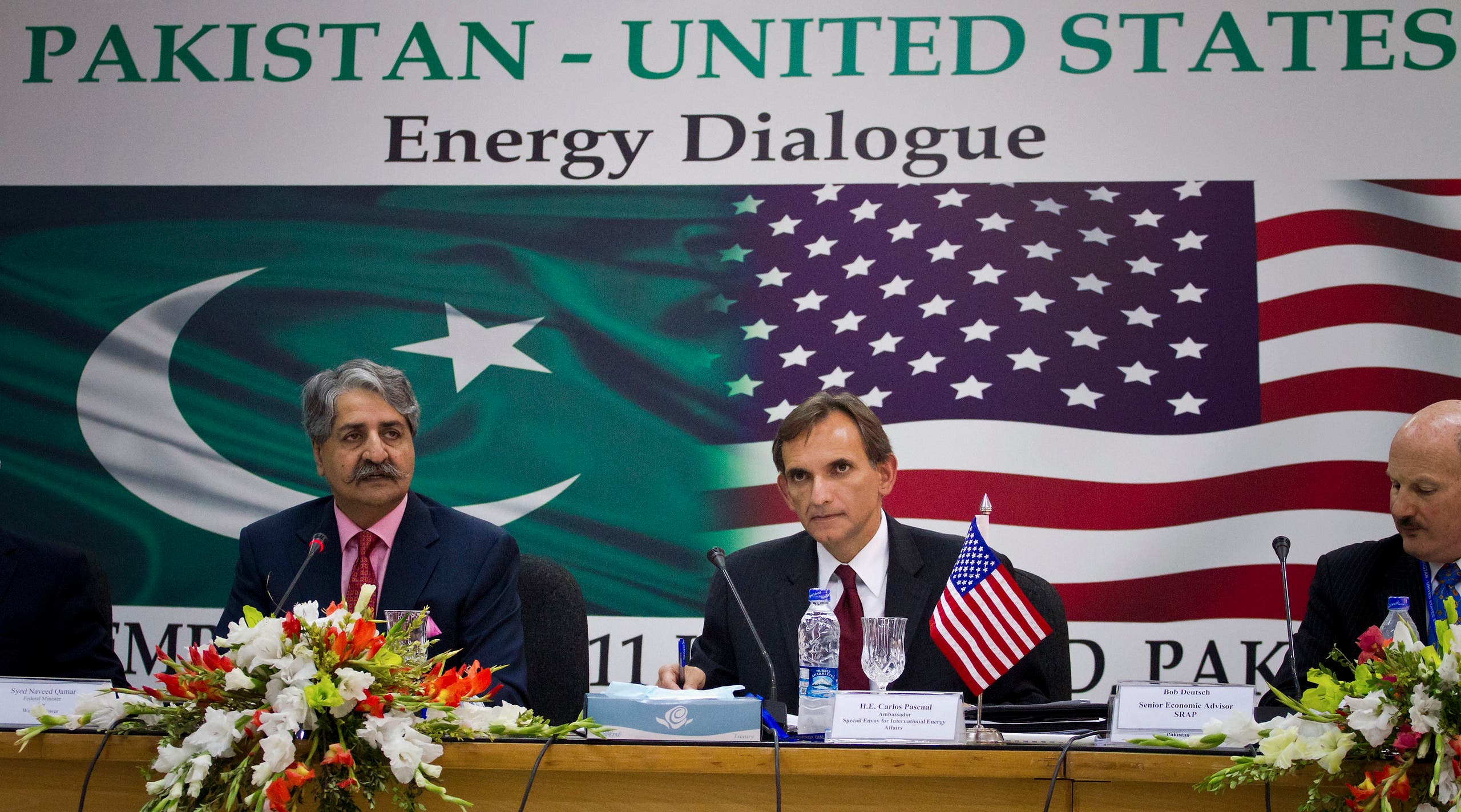Ever since the US energy conglomerate Exxon Mobil acquired around 25 percent shareholding in the offshore drilling field in Pakistan this year, it has been considered a significant development.
Returning to Pakistan after 33 years, the presence of Exxon Mobil promises to speed up oil and gas exploration and discovery in Pakistan as it brings in huge experience of deep and ultra-deep-water drilling to Pakistan.
Apparently, this new technology applied by them in the offshore drilling field has been responsible for bringing about a revolution in the oil and gas market in the US. Implementing the same state of the art technology in Pakistan might change the country’s economic fortunes at this critical time of financial crisis.
Up till this time, the Oil and Gas Development Company (OGDC), Pakistan Petroleum Limited (PPL) and the Italian energy firm ENI had carried out these operations and held around 33 percent stakes in this field. Now since the entry of Exxon Mobil in the country, the share of all these company partners has come down to 25 percent each as per agreement.
Finalizing the agreement, Exxon Mobil, PPL, ENI, OGDC and Government Holdings Private Limited (GHPL) representatives got together at the Prime Minister’s Secretariat just before the general elections were held in Pakistan.
During the next few months, these companies conducted a study and singled out potential areas for drilling activity. Planning to invest $70 million in the joint venture, the four companies finally decided to kick off the first exploratory well Kekra-1 in offshore Indus G-Block.

Pakistani Minister for Water and Power Naveed Qamar, left, speaks as US Special Envoy and Coordinator for International Energy Affairs, Carlos Pascual, right, looks on during the Pakistan-US Energy Dialogue in Islamabad, on Sept. 14, 2011. (File photo: AP)
Promising blocks
Around 7,500 square kilometers in span, the Indus G block is in ultra-deep waters offshore Pakistan and has been one of the most promising blocks, in recent years it was operated solely by ENI. Planning the first exploration well assignment in January 2019, ENI would also lead this joint venture as it has had continued presence in Pakistan.
Nevertheless, no commercially viable discovery took place in the last five decades and it all began in 1963 when an American company drilled three wells for the very first time near Pakistan’s shores and discovered no hydrocarbons. Subsequently also, all attempts have given negative results. Ostensibly, even the last offshore well Shark -1 drilled by ENI and PPL gave no positive results.
Additionally, even if a big discovery is made, it takes years to set up the appropriate infrastructure to commence production. This time round, however, the USAID conducted a study after collecting data from 1611 wells and came up with a favorable assessment. Even the US Energy Information Administration (EIA) figures regarding Pakistan have been positive in both 2011 and 2013 estimates.
Consequently, hopes are high as ENI contracts a ship for the drilling, which will now start in early December this year. The ENI has chartered a drillship from Saipem, the contract starts from 1st December this year and may be planning to ‘spud’ the Kekra-1 exploration well in the block in January 2019.
According to Offshore Energy Today, it received an email confirming the deal with Eni and a Saipem spokesperson said that, “We can confirm that Saipem 12000 is working for Eni in Pakistan.”
There was no further information about the scope of the work but it looks like the rig Saipem 12000 will be used to drill in the offshore Indus G-Block as the timing also matches.
Located nearly 280 km from the city of Karachi, the usual constraints for this exploratory site Kekra -1 are that suitable drilling times are from December to April and Karachi port is used for operations. Following the recent surveys undertaken, the prospects look bright and there are great expectations regarding this offshore drilling.
Discussing the project, OGDCL Managing Director Zahid Mir said: “The block has very high prospects, and exploratory well Kekra-I has strategic importance for the region as we are expecting a multi-billion cubic feet of gas flows from the block.” Notably, he remarked that, “If a success, this would be a game changer for the country as well as the entire region.”
Predictably, the interest of major oil companies should increase as the project commences and brings in foreign investment for Pakistan’s energy sector.
Last Update: Sunday, 4 November 2018 KSA 19:26 - GMT 16:26
- Get link
- X
- Other Apps
- Get link
- X
- Other Apps
Comments
Post a Comment